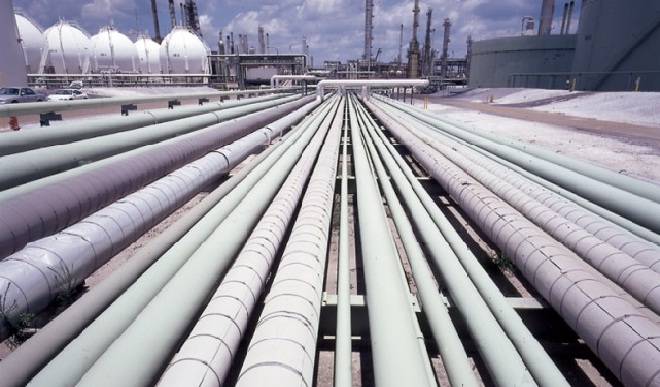FG Pays $120m From Gas Debts As Blackout Spreads
The Federal Government has paid $120m out of the $1.3bn indebtedness to gas companies for the supply of gas to run gas-fired power plants across the country.
Nigeria is currently suffering from low power supply because many gas suppliers have reduced, while others stopped supplying the commodity to power-generating companies due to the indebtedness of the Gencos to gas-producing firms.
The Minister of Power, Chief Adebayo Adelabu, recently revealed that the crash in power generation and attendant poor supply since January was because gas suppliers stopped supplying gas for the generation of electricity due to the indebtedness of the sector to gas producers.
Nigeria gets more than 70 per cent of its electricity from thermal power plants that run on gas. The remaining amount of electricity comes from hydropower-generating plants.
Speaking at the ongoing 7th Nigeria International Energy Summit in Abuja on Thursday, the Director, Decade of Gas Secretariat, Ed Ubong, expressed excitement that the Federal Government had cleared $120m out of the $1.3bn gas debts.
The Decade of Gas Secretariat is under the Federal Ministry of Petroleum Resources (Gas). The Federal Government is subsidising electricity by paying for the gas used in generating power, as Nigerian power users are currently not paying the exact amount for electricity.
“As of last year, that (gas debts) was about $1.3bn, depending on how you add up the numbers. But I am pleased that between October and the end of January, the government has paid over $120m to offset some of that money,” Ubong stated.
The total indebtedness of Nigeria’s power sector to electricity generating companies and gas producers had risen to about N3.3tn.
The report also stated that subsidy on electricity for 2024 would gulp about N3tn, whereas only N450bn was budgeted for this purpose in this year’s budget, adding that the government had stated that it was now very difficult to sustain power subsidy.
The power minister had said Nigeria must begin to move towards a cost-effective tariff model, as he revealed that the country was currently indebted to the tune of N1.3tn to electricity generating companies, while the debt to gas companies was $1.3bn.
Meanwhile, Ubong told delegates at the summit on Thursday that the government was developing a framework to address the lapses that often lead to such humongous gas debts in the power sector.
“More importantly, the government is also now working a framework that can mitigate most of that failure. That’s a piece of work that is ongoing and we hope that it will be approved and then the industry can move away from that legacy issue.
“We must build capacity for that. Capacity for the engineers, technicians that will work in this new gas sector that we are looking at for the next eight months. And as the secretary, we are committed to that,” he stated.
He said the Decade of Gas secretariat was sourcing competent personnel that would support the government in achieving the goals of Nigeria’s gas industry
“We are looking for interns, we are looking for young people who are willing to join us and then provide their time and energy supporting the wider and bigger goals of the sector.
“For the first time, we now have a ministerial committee. One that involves the Minister of State for Gas and the Ministry of Power, because power and gas, they go together.
“We are confident that when that becomes fully operational, that critical link between gas and power will lead to more sustainable solutions going forward,” Ubong stated.




